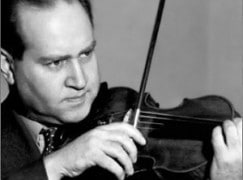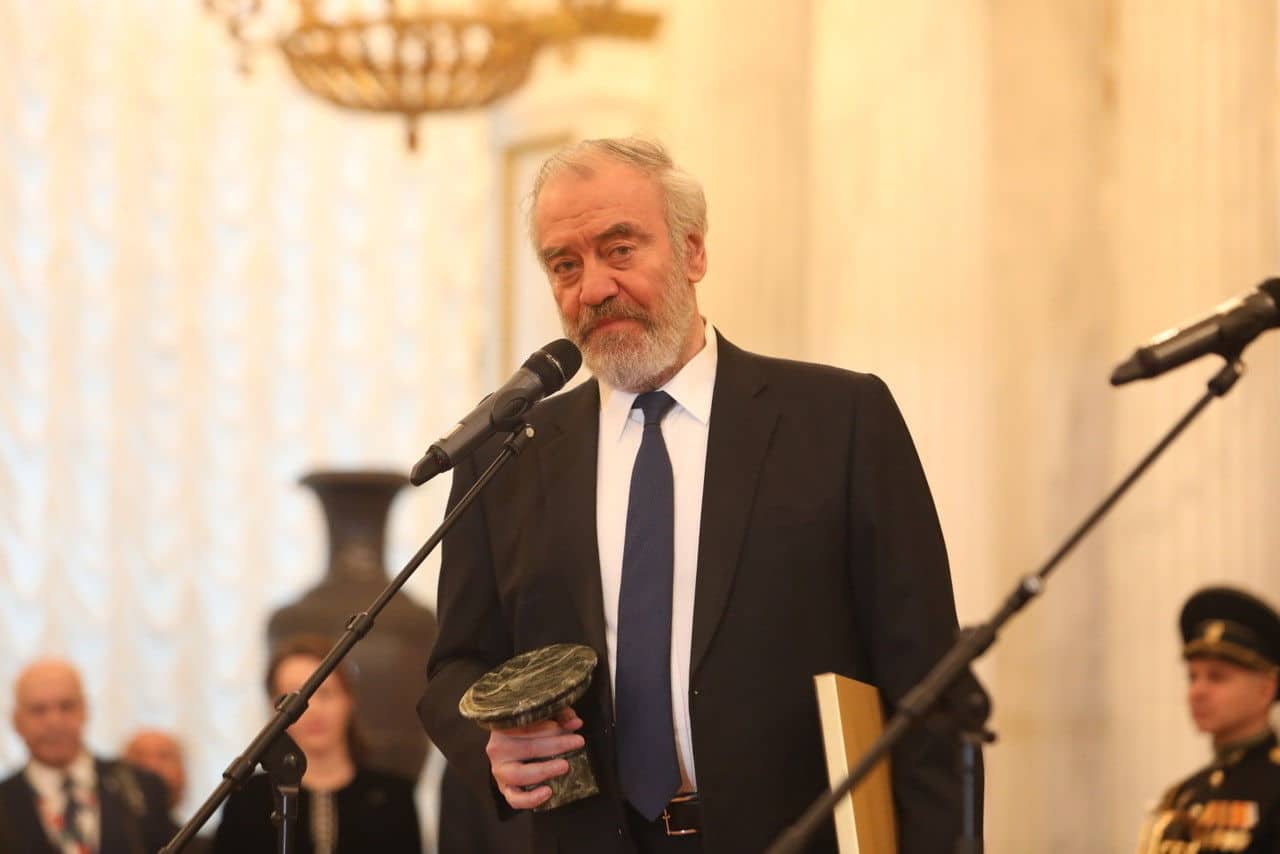David Oistrakh gives the kiss of life
Album Of The WeekFrom the Lebrecht Album of the Week:
Where has my week gone? Much of it was spent plundering a coffin of one of the most captivating violinists that ever lived. David Oistrakh, Odessa born (thus Ukrainian- rather than Russian-Jewish), set the tone for violin playing in the Soviet era. … Oistrakh, who died in 1974, lives on in this heavy box and the revelation is as gripping as ever…
Read on here.
And here.
En francais ici.






The very best of the best.
Which passage are you referring to in the Tchaikovsky recording when you say..’it gets included because Oistrakh plays a passage that appears in no printed score – a personal inspiration that was swiftly taken up by everyone else.’???
If it’s the passage I think you are talking about, which leads up to the big orchestral tutti of the principal theme in the 1st Mvt, then it’s the Auer edition that he is playing, and Heifetz plays exactly the same passage in his 1937 recording with Barbirolli, and Kogan used to play the same passage work in concert and on his recordings.
Oistrakh’s edition published by International shows the original more or less as written and with Auer’s changes which include cuts, changes (some of which are simplifications, others of which are embellishments or actual increases in the difficulty) so if the changes noted by N.L. are indeed the Auer changes then they are available in a printed score.
Artists like Isaac Stern accepted the Auer cuts but only some of the Auer changes. Heifetz and Elman accept more of the changes.
The Oistrakh/International edition more or less inspired this scholarly paper which goes into the differences in some detail.
https://www.towson.edu/cofac/departments/music/programs/gradperformance/documents/graduatepaperhaight.pdf
Oistrakh is one violinist that I deeply regret never having had the opportunity to hear live. But I will forever be grateful for what remains the greatest Tchaikovsky concerto recording ever made; the one with Ormandy and Philadelphia. Cuts and all, just a superb achievement and in far better sound than those ancient EMI recordings.
I had a ticket for his concert in the Musikverein in Vienna (1974),but he sadly died in Amsterdam, I think, just before this concert.
His recording of the Franck sonata for violin and piano with Sviatoslav Richter is one of all-great performances of anything.
I was incredibly fortunate to hear David Oistrakh live in March, 1970. First, when he played Mozart D major and Beethoven Concerto with the New York Philharmonic conducted by a 36-year-old Claudio Abbado. I sat in the third row center. Amazing. Also, the March 18 Tully Hall recital with Sviatoslav Richter where he played Beethoven A major and Brahms D minor sonatas. The Scherzo from Beethoven’s Spring sonata was an encore. Unforgettable. The day before, he gave a masterclass at Juilliard. After describing something to a violin student, I asked him to demonstrate and through his translator he said come to the recital.
“… Odessa born (thus Ukrainian- rather than Russian-Jewish) …”
Please have, at the very least, a look at Wikipedia before trying to make history fit into today’s political agenda.
Oistrakh was born twelve years before Odessa became for the very first time part of an Ukrainian state; and eight years later, he moved to Moscow already.
As to the idea of Odessa having been, at that time, a city inhabited primarily by Ukrainians —
a) peoples / countries who ruled the area of today’s Odessa (in historical order according to Wikipedia): Greeks, Petchenegs, Cumans, Republic of Genoa, Golden Horde, Crimean Khanate, Grand Duchy of Lithuania; then 1529-1792 the Ottoman Empire (with notable Moldavian, Greek, and Albanian settlements nearby); then 1792-1917 Russia, which in 1795 had the name changed to Odessa (and built most of the big city, to begin with);
b) During the 19th century, “Odessa became home to an extremely diverse population of Albanians, Armenians, Azeris, Bulgarians, Crimean Tatars, Frenchmen, Germans (including Mennonites), Greeks, Italians, Jews, Poles, Romanians, Russians, Turks, Ukrainians, and traders representing many other nationalities.” (Wikipedia again)
By the way, this is how Britannica puts it: “born … 1908, Odessa, Ukraine, Russian Empire [now in Ukraine]”. Just the facts, no politics.
If David Oistrakh was Ukrainian, then George Orwell was Indian, Albert Camus – Algerian and Alfred Rosenberg – Estonian. Silvius Leopold Weiss was Polish and Franz List was .Austrian, not Hungarian, as Wikipedia states erroneously.
You are right about the Beethoven Triple w.Sargent: memorable recording. Saw him once with Menuhin in Bach Double, and later conducting Prokofiev 5 (I think). Both RFH.